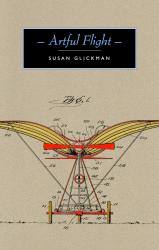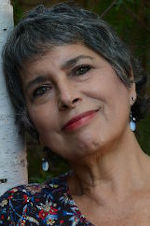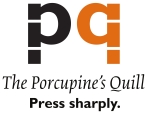
In Artful Flight, Susan Glickman dives into poetry and prose, music and visual art, in an effort to find the joy in creative work not as a path to the truth but as an end in itself.
About the Book
Susan Glickman muses that thoughtful literary criticism is not merely about ‘duelling with words, however full of flourishes and feints’. Rather it ‘means—or ought to mean—to evaluate something dispassionately, seeing not only its faults but its virtues.’ In Artful Flight, she does just that, writing respectfully but uncompromisingly about artistic topics both ostensibly familiar (such as considerations of writers like Northrop Frye, Don Coles, Erín Moure and Bronwen Wallace) and delightfully arcane (such as the etymological evolution of contranyms in Shakespeare and beyond).
With keen intelligence and droll wit, Glickman explores a variety of artistic concerns, from the expectations of literary genre, the formalist hurdles of poetry and the tyranny of modern opinion to the magical history of the violin and the pleasure of creating visual art later in life. Her approach is unabashedly her own: feminist, supportive and drawing on a wide range of cultural and literary references.
These well-reasoned essays prove that balanced criticism can be compelling, nuanced and sensitive to the motives and influences of artists.
From the Introduction
In June of 2017, I began putting together a selection of my essays and reviews. Because I had blithely binned some of these pieces just three years prior—when I gave my musician son my office to turn into his music studio and moved myself into a smaller space, recycling 25 bags of paper in the process—I spent that summer sleuthing out lost work on the internet and at the library, retyping some essays and photocopying others. Eventually I had over 500 pages of prose, including teaching notes, online interviews, and letters written in answer to high school and university students’ questions about my books.
Even I was surprised to discover how much fugitive prose I had written since the early 1980s, when I finished a doctorate on Shakespeare’s dramaturgy and started teaching at the University of Toronto. I’d never published anything on my thesis topic, having recognized belatedly—when my first book of poetry came out in 1983 and the English Department insisted that ‘it didn’t count as a publication’—that I would have to establish expertise in a different area to find a job that rewarded creative work. So instead of seeking further employment as a Renaissance scholar I got a post-doctoral fellowship, which became The Picturesque and the Sublime: A Poetics of the Canadian Landscape (1998). During those years of study, I read and wrote about as much Canadian poetry as I could. Many of the critical pieces included here were written then.
After I dropped out of academia for a few years to have children, those doors swung shut behind me and I never got my ‘career’ back. But I had already got in the habit of writing essays and kept on doing so through six more volumes of poetry, four novels, and three children’s books. Sometimes people invited me to write stuff; other times I needed to figure something out for myself by working it through on paper. The word ‘essay’, as first used by Michel de Montaigne, means ‘an attempt’, and that’s what these are.
...
I am writing this introduction in July 2020, the summer of Covid-19. The only such summer, I hope, but we never know what the future holds. In the midst of a pandemic, this gathering of belle-lettres seems superfluous, but I keep reminding myself that the plague was raging in Paris in 1580, the year Montaigne’s Essays were first published, and that Shakespeare just kept on writing whenever rampant infection closed the theatres in London, confident that they would eventually reopen. The example of these masters persuades me that there will again be a time when writing about poetry will not seem frivolous to everyone except poets.
Or maybe that time is actually now, when we are in suspended animation and the future and past swirl around us in a quantum rather than linear moment. An eerie quiet has fallen over my normally bustling neighbourhood. The weather is beautiful because the dwindling of the city’s traffic has left the air fresh and the sky blue, day after day. Although essential workers never left their jobs, many other people have become unemployed or are struggling to work remotely. Children who lost their last three months of school are enduring a summer of limited activity, unable to play with each other. My life, however, is unchanged. Since I left the university in 1996, I have not had an office to go to; I have worked contract to contract, teaching creative writing, editing books, and taking art classes. What I once saw as insecurity I now recognize as freedom.
A contranym, perhaps? Read ‘Let’ and you will see what I mean.
[Continued in Artful Flight...]
—Susan Glickman, Toronto, July 2020
Praise for Artful Flight
‘Arguably a book length anti-hot-take, Artful Flight is a nuanced, intelligent, and witty deep dive into the literary arts.’
—Open Book
About the Author

Credit: Toan Klein
Susan Glickman’s itinerant lifestyle has included the study of classical civilization in Athens, yoga in India and English literature at Oxford. She has enjoyed a varied career as an educator, editor and academic, and has written over a dozen books in a variety of genres. She lives in Toronto.
You Might Also Like
Buy in Print
To get this book in print, order from your favourite indie bookseller, or
buy online from our distributor, UTP »
Print ISBN: 9780889848795
eBook ISBN: 9780889844414
